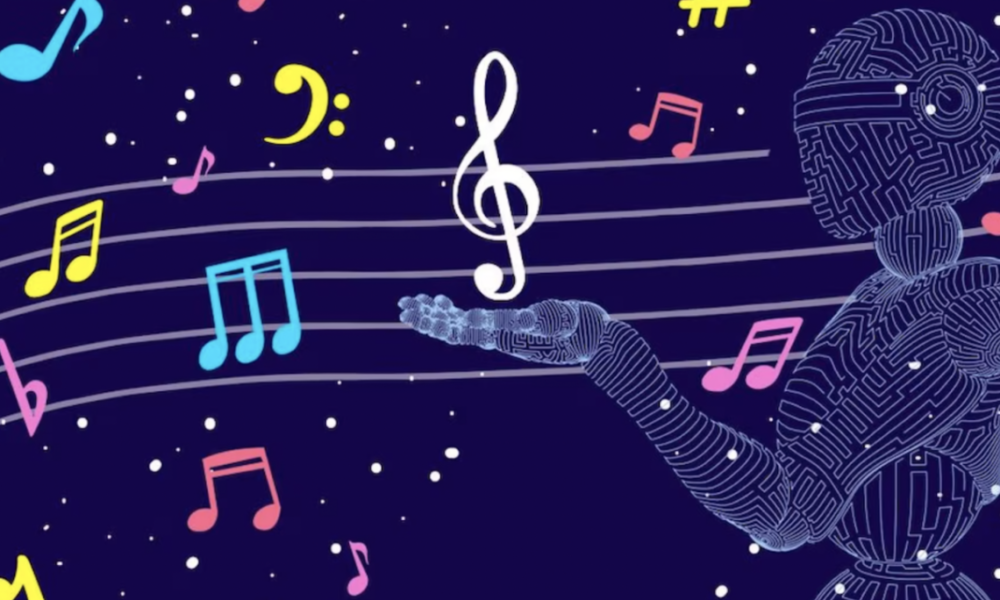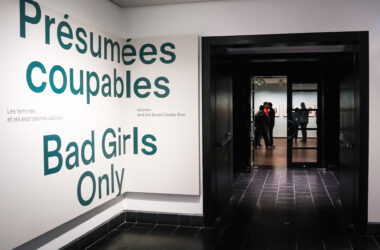In recent years, the term artificial intelligence (AI) has become part of our everyday vocabulary. The emergence of ChatGPT in the fall of 2022 sparked both curiosity and concern for AI’s future across industries. Just four months later, Spotify introduced its AI-powered DJ robot which uses generative OpenAI technology to customize song queues for users. Spotify’s DJ marks a milestone for the tech world: AI’s entry into the arts. As technological innovation and musical creativity continue to rapidly evolve, we find ourselves at a critical juncture for AI and the music industry.
In a recently uploaded video, Recording Academy CEO Harvey Mason Jr. confirmed that the AI-generated song “Heart on My Sleeve” would be ineligible for a Grammy award. Earlier this year, the track gained significant viral attention for its AI-generated vocals mimicking Drake and The Weeknd. Streaming platforms later removed the song following legal action by Universal Music Group, the record label representing the artists. Despite this setback, anonymous artist Ghostwriter submitted “Heart on My Sleeve” for consideration in two categories at the 2024 Grammy Awards. Although technically written by a human creator, the music used illegally-obtained vocals that prevented it from having legitimate commercial availability, thus rendering it unsuitable for submission.
Regardless of recognition from award ceremonies like the Grammys, “Heart on My Sleeve” proves the musical success that creators can achieve using AI technology. But does this song hold the same validity and authenticity of a song sung and written solely by human artists? That answer continues to be up for debate.
One of the most exciting aspects of incorporating AI in music and the arts is its potential to enhance the overall creativity and practicality of the landscape. Incorporating AI in music production allows established artists like Paul McCartney to explore new creative frontiers, such as using AI software to re-record an unreleased Beatles song, and applying modern music production technology to the voices of deceased members Lennon and Harrison.
Additionally, as AI becomes more accessible as a music production tool, it can help aspiring musicians break into the industry. For instance, Canadian musician and former McGill student Grimes launched ElfTech in April 2023, an online AI-employing software that enables music creators to incorporate her voice into their compositions for a royalty fee. AI-powered software tools like ElfTech hold the potential for an infinite number of new songs and scores, inspiring artists to push boundaries that cultivate a diverse and exciting artistic landscape.
AI’s ability to create aesthetically pleasing melodies is undeniable. However, whether it can truly capture the heartfelt emotions that human artists infuse in their work remains controversial. Music carries extreme personal significance, offering comfort by expressing our innermost feelings when we struggle to articulate them ourselves. It serves as a means for connection—hence why many view sharing songs as a love language. Yet, what transpires when algorithms gradually assume this role? AI will never be fully able to replicate the passion and raw emotion that artists put into their music. Apart from the emotional dimension, there are also questions of authorship. Who should be recognized as the creator of AI-generated art? Should credit be given to The Weeknd and Drake, or to Ghostwriter? Another aspect that proves polarizing is the issue of appropriation and bias. What happens when AI begins profiting off songs that depict the struggles others experience?
In the evolving realm of artificial intelligence, the debate surrounding “Heart on My Sleeve” raises crucial questions about creativity’s essence. AI has the potential to revolutionize creativity by reviving legends and empowering newcomers but falls short of providing the emotional depth and human connection that is so valued in art. As AI’s presence grows, navigating authorship, appropriation, and bias becomes increasingly complex. While the future holds endless possibilities for AI in music, the extent to which it should be present remains up for debate.








